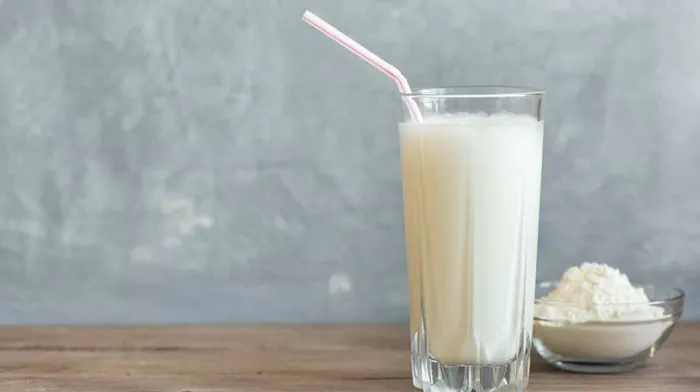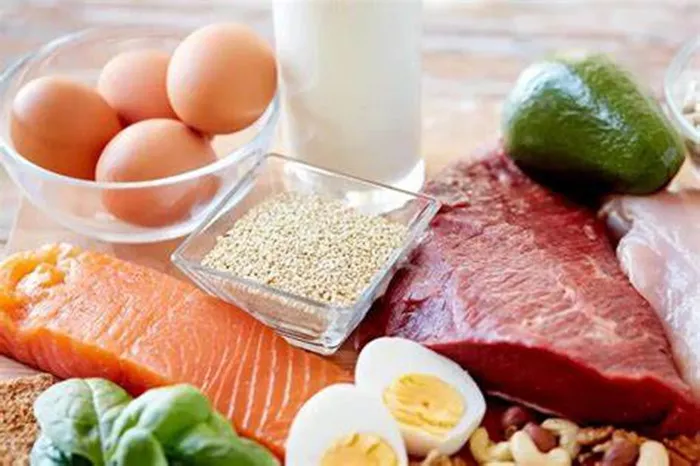Protein powder has become a staple for many fitness enthusiasts and individuals looking to increase their protein intake conveniently. However, there are numerous reasons one might seek alternatives to protein powder, including dietary restrictions, taste preferences, or a desire for less processed options. This article explores various protein-rich foods that can effectively replace protein powder, providing detailed descriptions of each alternative and how they can fit into your diet.
Protein Needs
Before diving into alternatives, it’s essential to understand the role of protein in our diet. Protein is crucial for building and repairing tissues, making enzymes and hormones, and supporting overall health. The recommended dietary allowance (RDA) for protein is approximately 0.8 grams per kilogram of body weight for the average adult. However, athletes and those engaged in regular physical activity may require more—up to 1.2 to 2.0 grams per kilogram.
Why Consider Alternatives?
There are several reasons individuals might consider alternatives to protein powder:
Digestive Issues: Some people experience bloating or discomfort from whey or casein protein powders, especially if they are lactose intolerant.
Taste Preferences: Many find the taste or texture of protein powders unpalatable, preferring whole food sources instead.
Desire for Whole Foods: A growing trend emphasizes the importance of consuming whole foods over processed supplements for better nutrient absorption and overall health.
Cost: Quality protein powders can be expensive, while whole food sources can often be more economical.
With these considerations in mind, let’s explore some excellent alternatives to protein powder.
High-Protein Dairy Products
Dairy products are among the richest sources of protein available. They not only provide high-quality protein but also come packed with essential nutrients like calcium and vitamin D.
1. Greek Yogurt
Greek yogurt is a fantastic substitute for protein powder due to its high protein content—approximately 10 grams per 100 grams. It is also rich in probiotics, which support gut health. Greek yogurt can be consumed alone or added to smoothies, oatmeal, or baked goods for a creamy texture and added nutrition.
2. Cottage Cheese
Cottage cheese is another dairy product that offers about 11 grams of protein per 100 grams. It is versatile and can be eaten plain, mixed with fruits, or used in savory dishes like salads or as a topping for whole-grain toast.
3. Skyr
Skyr is an Icelandic dairy product similar to Greek yogurt but thicker and creamier. It contains around 10-12 grams of protein per serving and is low in fat. Skyr can be enjoyed as a snack or breakfast option when topped with fruits or nuts.
4. Kefir
Kefir is a fermented milk drink that provides about 3-4 grams of protein per cup along with beneficial probiotics. It can be consumed as a drink or used in smoothies and salad dressings.
Eggs: A Complete Protein Source
Eggs are often hailed as one of the best sources of complete protein, containing all nine essential amino acids. A large egg provides about 6 grams of protein.
5. Whole Eggs
Whole eggs are incredibly versatile; they can be boiled, scrambled, poached, or used in baking. The yolk contains healthy fats and vitamins, making them a nutrient-dense option.
6. Egg Whites
For those looking to reduce fat intake while still getting high-quality protein, egg whites are an excellent choice. Each egg white contains about 3 grams of protein with minimal calories and no fat.
See Also: How Do Animal And Plant-Based Milks Affect Gut Health?
Meat and Seafood Options
Animal proteins are typically rich in essential amino acids and other nutrients vital for health.
7. Chicken Breast
Skinless chicken breast is one of the leanest sources of animal protein available, offering approximately 31 grams of protein per 100 grams cooked. It can be grilled, baked, or added to salads and wraps.
8. Turkey
Turkey is another lean meat option that provides about 29 grams of protein per 100 grams cooked. Ground turkey can be used in various dishes such as tacos, burgers, or meatballs.
9. Fish
Fish such as salmon and tuna are not only high in protein (about 22-25 grams per 100 grams) but also provide healthy omega-3 fatty acids beneficial for heart health. They can be grilled, baked, or included in salads and sandwiches.
10. Canned Tuna
Canned tuna is an affordable source of protein that offers around 25 grams per 100 grams. It’s convenient for quick meals like salads or sandwiches.
11. Beef Jerky
For a portable snack option, beef jerky delivers around 30 grams of protein per 100 grams without needing refrigeration. However, it’s important to choose low-sodium varieties without added preservatives.
Plant-Based Protein Sources
For those following vegetarian or vegan diets, there are plenty of plant-based options that provide ample amounts of protein.
12. Legumes
Beans and lentils are excellent sources of plant-based protein; cooked lentils provide about 9 grams per half-cup serving while black beans offer around 15 grams per cup cooked. They can be added to soups, salads, or made into veggie burgers.
13. Chickpeas
Chickpeas contain about 15 grams of protein per cup cooked and are incredibly versatile; they can be used in salads, hummus, or roasted as a crunchy snack.
14. Quinoa
Quinoa is a complete grain that provides around 8 grams of protein per cup cooked along with fiber and essential amino acids. It serves as a great base for salads or bowls when combined with vegetables and proteins.
15. Nuts and Nut Butters
Nuts such as almonds (21 grams per 100 grams) and walnuts (15 grams per 100 grams) are great sources of healthy fats and proteins. Nut butters like peanut butter contain about 25 grams of protein per 100 grams and can be spread on toast or blended into smoothies.
16. Seeds
Seeds such as chia seeds (17 grams per 100 grams) and hemp seeds (31 grams per 100 grams) offer significant amounts of protein along with healthy fats and fiber. They can be sprinkled on salads or added to smoothies for extra nutrition.
17. Tofu
Tofu is a soy-based product that provides around 8 grams of protein per 100 grams while being low in calories and fat. It absorbs flavors well from marinades and spices, making it suitable for various dishes ranging from stir-fries to salads.
18. Edamame
Edamame (young soybeans) offers about 11 grams of protein per half-cup serving when cooked and is an excellent snack option either steamed or tossed into salads.
High-Protein Smoothie Ideas
If you enjoy smoothies but want to avoid traditional protein powders, consider these combinations:
19. Peanut Butter Banana Smoothie
Blend together one banana, two tablespoons of peanut butter (8g), one cup of milk (8g), and some ice for a creamy smoothie with approximately 16g of protein.
20. Berry Chia Seed Smoothie
Combine one cup mixed berries (1g), two tablespoons chia seeds (4g), one cup yogurt (10g), and water or milk for a refreshing smoothie containing around 15g of protein total.
21. Green Protein Smoothie
Blend one cup spinach (1g), half an avocado (2g), one banana (1g), one tablespoon almond butter (3g), and one cup almond milk (1g) for a nutrient-packed smoothie with approximately 8g of plant-based protein.
Conclusion
While protein powders offer convenience for increasing dietary intake quickly, numerous whole food alternatives provide similar benefits without the drawbacks associated with processed products. Incorporating these foods into your diet not only helps you meet your daily protein needs but also ensures you receive additional nutrients that contribute to overall health. By focusing on whole foods—whether dairy products like Greek yogurt and cottage cheese; meats such as chicken breast; plant-based options like legumes; or simple snacks like nuts—you can enjoy delicious meals while effectively fueling your body without relying on supplements alone.
[inline_related_posts title=”You Might Be Interested In” title_align=”left” style=”list” number=”6″ align=”none” ids=”12382,12220,12216″ by=”categories” orderby=”rand” order=”DESC” hide_thumb=”no” thumb_right=”no” views=”no” date=”yes” grid_columns=”2″ post_type=”” tax=””]



































